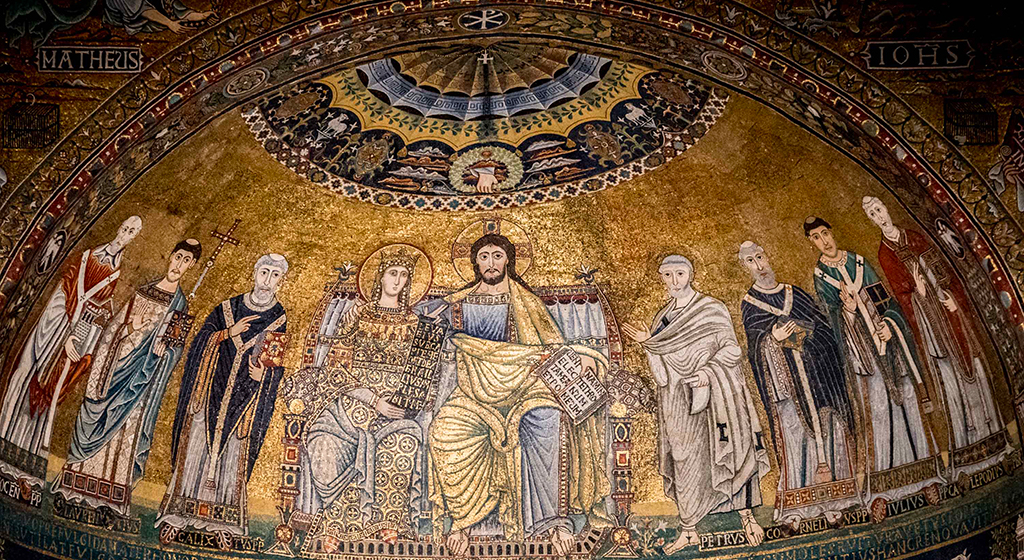Memory of the Church
Reading of the Word of God
Alleluia, alleluia, alleluia
I am the good shepherd,
my sheep listen to my voice,
and they become
one flock and one fold.
.
Alleluia, alleluia, alleluia
Matthew 9,1-8
He got back in the boat, crossed the water and came to his home town. And suddenly some people brought him a paralytic stretched out on a bed. Seeing their faith, Jesus said to the paralytic, 'Take comfort, my child, your sins are forgiven.' And now some scribes said to themselves, 'This man is being blasphemous.' Knowing what was in their minds Jesus said, 'Why do you have such wicked thoughts in your hearts? Now, which of these is easier: to say, "Your sins are forgiven," or to say, "Get up and walk"? But to prove to you that the Son of man has authority on earth to forgive sins,' -- then he said to the paralytic-'get up, pick up your bed and go off home.' And the man got up and went home. A feeling of awe came over the crowd when they saw this, and they praised God for having given such authority to human beings.
Alleluia, alleluia, alleluia
I give you a new commandment,
that you love one another.
Alleluia, alleluia, alleluia
After Jesus has returned to Capernaum, some people bring him a paralyzed man on a stretcher and put him in the centre of the room. It is not just a physical centre, but the centre of attention, interest, and concern for the sick man, rather than themselves. These friends' love is, in some ways, the beginning of the miracle. Seeing their faith, the evangelist writes, Jesus decides to act. This notation reminds us of the power of prayer for the sick. The paralyzed man certainly wanted to be healed, but here the reason Jesus heals is explicitly reported: the faith of the man's friends. The Church, and every Christian community, must rediscover itself as a friend of the sick and be ready to present them to the Lord. And Jesus will not fail to respond to the prayer we make to him. Perhaps not in the way we think, but there will be healing. He does not just heal the body; he heals the heart. Jesus speaks words to him that no one had even spoken: "Your sins are forgiven." Jesus does not want to insinuate that the paralyzed man's illness was caused by his sins. Instead, he is trying to demonstrate a more important fact: his power also extends over sins, and he can erase them. Healing also reaches the heart. Here, understandably, the scene turns into a theological debate. Hearing these words, the scribes who are present being to think badly of Jesus, without saying so. But Jesus, who sees into the heart, unmasks them and reveals the extent of his mercy, "Stand up," he says to the paralyzed man, "take your bed and go to your home." The Lord has worked a double miracle in that sick man: he has forgiven his sins and healed him from paralysis. Someone who heals the body and heart has come among men and women.
